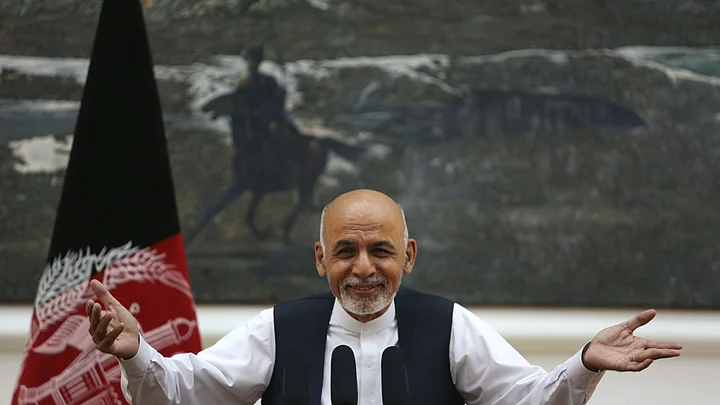(On the completion of Afghanistan President Ashraf Ghani’s one year in power, a look at the challenges facing the country)
Contrary to the expectations of some Afghan watchers, the National Unity Government (NUG) led by President Ashraf Ghani and Chief Executive Abdullah Abdullah completed a year on 29 September 2015. It was formed after a fraudulent election; the latter was robbed of victory through the machinations of foreign powers, including the US, and former President Hamid Karzai and Pashtun leaders who wanted Ghani to become president on ethnic considerations and “reliability”.
Abdullah deserves credit for showing maturity at substantial political cost to prevent a systemic collapse, and managing to handle Ghani who is known for his temper tantrums. While the arrangement appears stable, questions about its durability remain unanswered.
Challenges Galore
Afghanistan confronts formidable political, economic and, above all, security challenges. It has succeeded to limp along through last year but there is no sign that the country is on the road to address them. Four decades of continuous civil conflict, the full spectrum of ideologies in successive regimes – from classical Marxist to viciously obscurantist Jihadist to Islamic democratic – economic collapse and social dislocation have impaired national coherence.
They have also raised issues of overall and fundamental transformations, including the elimination of narcotics, which are needed in all areas of national life. That would require the Afghan political class to show unprecedented unity and vision which it has not demonstrated so far. But the people are resilient and the youth remarkably forward looking and so there is hope.
Following the announcement of Mullah Omar’s death the Afghan Taliban have a new leader, Akhtar Mansour. With Pakistan’s help he has been able to get control over the movement but not all have accepted him as their leader. Some opponents remain within while others have raised the ISIS flag. Mansour has talked to the NUG under Pakistani supervision but he has not abandoned violence.
Approach to Pakistan
As it controls the Afghan Taliban, Pakistan is critical to Afghanistan’s security. Going against the popular sentiment which considers Pakistan as implacably hostile to Afghanistan, Ghani still reached out to it to mend fences even at the cost of downgrading relations with India.
He urged Pakistan to get the Taliban to the negotiating table and to end violence. However, as Taliban violence continues unabated, Ghani, on the back foot, has lashed out at Pakistan and relations have somewhat cooled off again.
Ghani, with Western encouragement, is unlikely to change his basic approach to Pakistan or negotiations with the Taliban. It is likely that in the next few months talks will resume.
A modus vivendi between the NUG and the Afghan Taliban, impossible as long as Omar was there, will still be very difficult to achieve. This is especially as Pakistan would like through Mansour to gain enough influence in Kabul to ensure that Pakistan’s interests are given a priority.
Problems Within the Regime
Afghanistan’s politics are in a state of flux. The Parliament has completed its term and has been extended by presidential decree. The NUG is faction ridden. Relations between the Parliament and the NUG are rocky.
Numerous nominations of ministers, including the important portfolio of defence, have been turned down. The defence minister continues again through Ghani’s decree. The NUG’s control of some important provinces is only in name for the Taliban and its affiliates dominate them.
The Ghani-Abdullah agreement that led to the formation of the NUG envisages electoral reform and constitutional amendment to create the position of a prime minister. The former had made no headway while the latter will certainly deepen political fractures.
A Year of Transformation
- The National Unity Government led by President Ashraf Ghani and Chief Executive Abdullah Abdullah completes a year
- Credit must be given to Abdullah for showing political maturity and preventing a systemic collapse
- Country still fraught with many challenges on social and economic front
- The Afghan political class needs to come together to fight against these challenges
- India should shed its ‘wait-and-watch’ policy on Afghanistan
Pro-Active Afghan Policy
The NUG cannot survive without the continued massive foreign financial assistance for its daily functioning, leave alone developmental activities. With lack of confidence in the future the economy is in doldrums.
The future lies in developing the country’s vast mineral potential evaluated at between $1 to 3 trillion. India and China have taken important billion-dollar concessions in iron ore and copper, respectively, but are reluctant to seriously begin making investments primarily because of insecurity.
In the coming year, it is likely that Afghanistan will continue to stumble along amidst continuing Taliban violence, even while a few rounds of NUG-Taliban talks may take place.
Last year India has, to the disappointment of its many Afghan friends, adopted a “wait and watch” approach. That needs to change in order to protect its interests. A proactive Afghan policy is needed.
(The writer is a former Secretary (West), Ministry of External Affairs.)
(At The Quint, we question everything. Play an active role in shaping our journalism by becoming a member today.)
